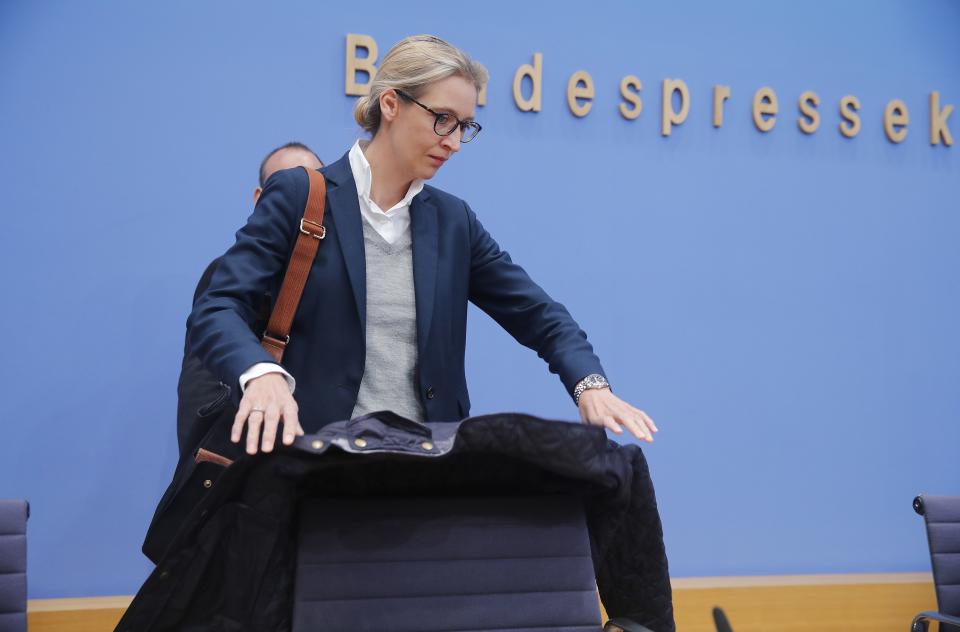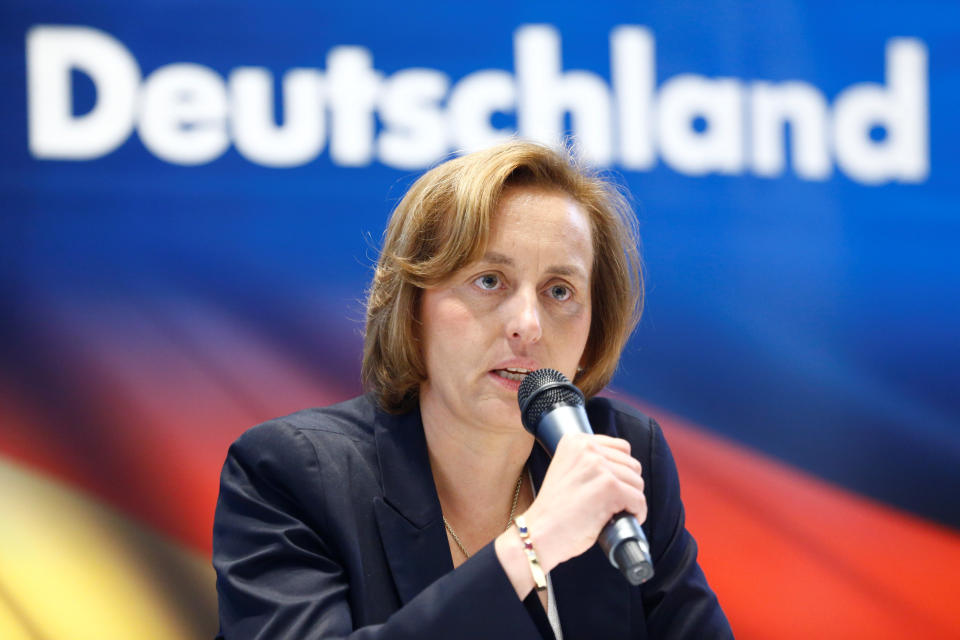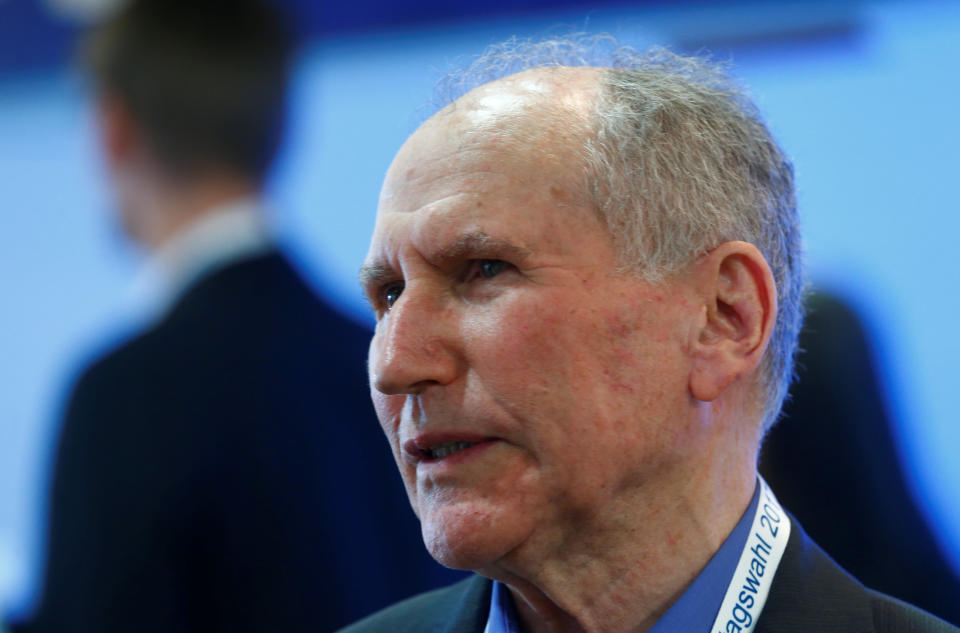Six controversial members of Germany's far-right AfD - and what they believe

The shocking rise of Germany’s far-right AfD party suggests a turning point in German politics.
Angela Merkel won her fourth consecutive election on Sunday – but the real surprise was the performance of the Alternative für Deutschland who polled 12.6% of the votes to win 88 seats in parliament. In 2013, they did not win a single seat.
The rise of the far-right in Germany is ascribed in part to Merkel’s promise to ‘open the doors’ to refugees. Some experts estimate around 10,000 people arrived into Germany every day in 2016.
Although the AfD was founded in 2013 as an anti-Europe party, it has found greater success after shifting its focus to Islam and immigration. It now has MPs in 13 of Germany’s 16 state parliaments.
So who are the most controversial figures in the party?
Alexander Gauland

The AfD’s candidate for Chancellor, Alexander Gauland, is currently under police investigation on suspicion of inciting racial hatred. He is a former member of Merkel’s CDU party, under the conservative wing.
Recently, he suggested Germans take pride in the military achievements of the Nazis and has called for the country to ‘reclaim its past’. He has also been under fire for his talk of ‘disposing’ SPD politician Aydan Özoguz (who has Turkish roots) ‘in Anatolia’.
Gauland was the party’s co-founder and also is also its spokesperson. Previously, he has said of his party: ‘We are not the allies of the right-wing extremists, but we are the allies of the people who have these concerns.’
Alice Weidel

Weidel refers to herself as a ‘classic liberal’, but she stands for more than a couple of controversial policies.
Her party wants to close Germany’s borders, leave the Eurozone and crack down on immigration.
Weidel, who owns a house in Switzerland and has previously lived in China, is an ex-Goldman Sachs banker and a mum of two. She is known for being the first openly gay leader of a party which opposes gay marriage.
When Germany legalised same-sex marriage, AfD’s website ran an obituary saying: ‘In deep sorrow, we say goodbye to the German family, whose constitutional protection was buried by the ‘representatives of the people’ at the German parliament.’
Despite her globetrotting past, she’s previously made various xenophobic remarks about refugees.
Björn Höcke

Björn Höcke has a big interest in family policy.
As a young person, he was part of the Junge Union (Union for young people supporting the CDU and CSU parties) which was known for being liberal and progressive. Now, Höcke regularly serves as one of the main speakers for the AfD party.
He opposes sex education in schools and wants an end of ‘society experiments’ that run outside the typical, heterosexual family lifestyle. He thinks returning to Germany’s old currency, the Deutsche Mark, will encourage the end of the European debt crisis and also supports a crackdown on immigration.
Höcke has also declared the Berlin Holocaust Memorial was a “memorial of shame”, which led to attempts to exclude him from the party.
André Poggenburg

Andre Poggenburg is chairman of the party in the federal state of Saxony-Anhalt and was a leading candidate for the district’s state elections.
Poggenburg, a prominent member of the AfD party, is known for using Nazi vocabulary in speeches and denouncing Muslims as terrorists. He describes himself as a ‘national conservative’ and faced criticism in 2016 for blaming the Munich shooting on Merkel’s open refugee policy.
In June 2017, he was subject to an official warning from the party after a leaked Whatsapp conversation showed him using far-right phrases. He had allegedly used the phrase “Deutschland den Deutschen” (roughly: “Germany for the Germans”) which was a commonly used slogan of the far-right NPD party – one that AfD tries to separate itself from.
Beatrix von Storch

Von Storch is best known for her comments on shooting refugees, which she later tried to water down by saying ‘the use of firearms against children is not permitted’ although ‘women are a different matter’.
A Member of the European Parliament, Von Storch previously worked as a banker and a lawyer. Her grandfather worked as a minister in Hitler’s government.
In February 2016, members of the left-wing group Peng Collective threw a pie at her at a party meeting in Kassel in response to her anti-refugee comments.
Josef Dörr

The national chairman of the AfD’s regional associations, Dörr used to be a special school teacher. He was also a member of the Junge Union and was active in the CSU for 23 years. He is most known for this role in the AfD Saar, which was threatened with closure after it was found to be working closely with far-right organisations. However, these attempts were unsuccessful, and the association remains today.
READ MORE:
British people are obsessed with the idea that Nazis might return to Germany – maybe they should look closer to home
Early splits in Germany’s far-right AfD as co-leader Frauke Petry quits party
South Europe bonds lag as euro hardliners bound for German government

 Yahoo News
Yahoo News 
